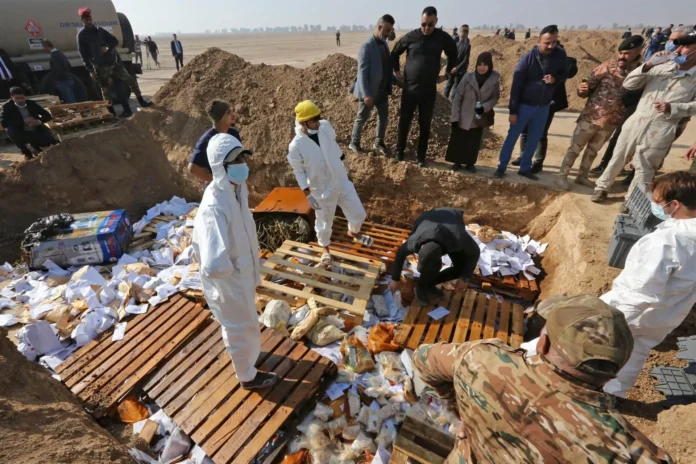Iraq-Iran cooperation has led to the dismantling of powerful drug trafficking networks along the shared border. Officials from both countries announced the results during a joint press conference in Baghdad on Wednesday. The event also highlighted long-term preventive measures and new steps in rehabilitation and treatment programs.
During the press meeting, Iraq’s Interior Minister Abdul Amir al-Shammari appeared alongside Health Minister Saleh Mahdi al-Hasnawi. Senior Iranian representatives also attended, including Vice President Hossein Zolfaghari. Together, the delegations stressed that Iraq-Iran cooperation now plays a crucial role in fighting narcotics and organized crime.
Al-Shammari stated that his ministry works closely with the Health Ministry and the Commission for Combating Narcotics. He explained that the fight against drugs requires regional strategies and international partnerships. He underlined that Iraq-Iran cooperation strengthens border control and prevents criminal groups from expanding their activities.
Al-Hasnawi also emphasized the need for coordination between security and health authorities. He called for stronger programs on prevention, rehabilitation, and treatment. He explained that Iraq currently operates 16 rehabilitation centers. In addition, he highlighted the Al-Qanah Community Rehabilitation Center, which is the largest in the Middle East. Another new center is under construction, while hospitals in Baghdad and other provinces already host treatment units.
Zolfaghari confirmed that Iran signed a memorandum of understanding with Iraq. This agreement will expand work on training, prevention, and treatment. He expressed appreciation for Iraq’s government and its people, stressing that joint initiatives will continue.
For many years, Iraq mainly served as a transit corridor for narcotics smuggled from Afghanistan and Iran to Gulf states and Europe. However, recent United Nations reports warned that Iraq risks becoming a major hub for drug smuggling.
Recent official data highlight the scale of the crisis. Security forces seized narcotic pills worth about $144 million in 2024. Authorities also reported nearly 10,000 arrests related to drug crimes that year. Over 5,000 cases led to prosecution. Security agencies further confirmed that they dismantled numerous international trafficking groups.
Experts warn that the rise in trafficking reflects both domestic consumption and international demand. However, leaders from both countries insist that stronger Iraq-Iran cooperation can reduce risks and protect vulnerable communities.


